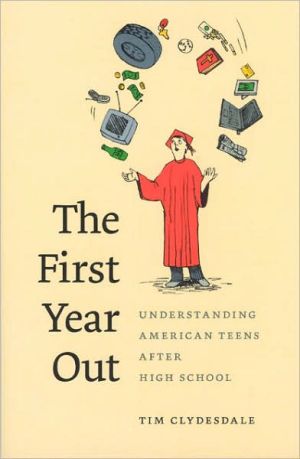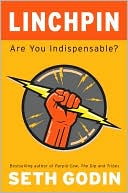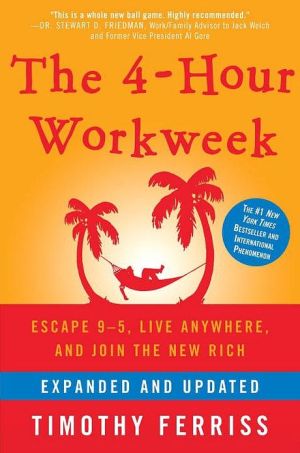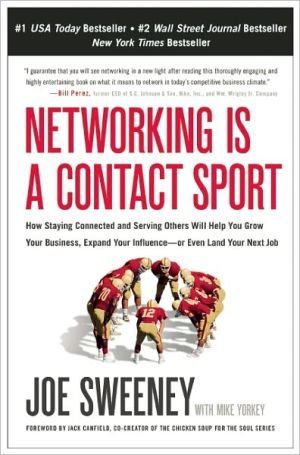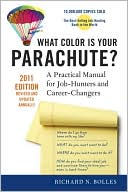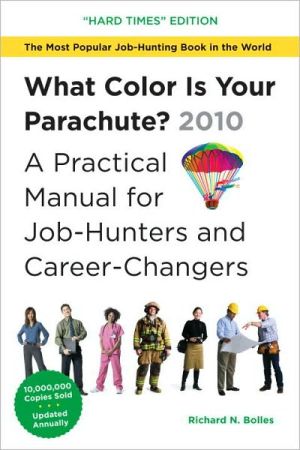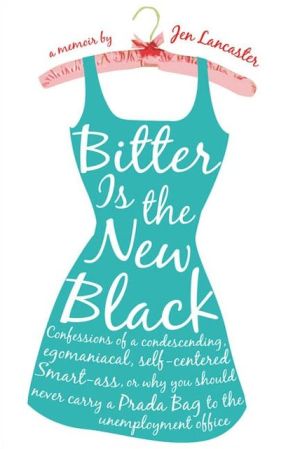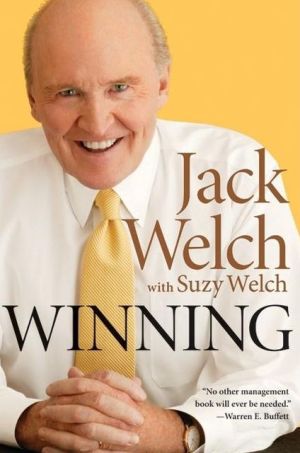The First Year Out: Understanding American Teens after High School
Wild parties, late nights, and lots of sex, drugs, and alcohol. Many assume these are the things that define an American teenager's first year after high school-but the reality is quite different. Tracking the day-to-day lives of fifty young people, Tim Clydesdale reveals how teens settle into manageable patterns of substance use and sexual activity; how they meet the requirements of postsecondary education; and how they cope with new financial expectations. Most of them, we learn, handle the...
Search in google:
Wild parties, late nights, and lots of sex, drugs, and alcohol. Many assume these are the things that define an American teenager’s first year after high school. But the reality is really quite different. As Tim Clydesdale reports in The First Year Out, teenagers generally manage the increased responsibilities of everyday life immediately after graduation effectively. But, like many good things, this comes at a cost.Tracking the daily lives of fifty young people making the transition to life after high school, Clydesdale reveals how teens settle into manageable patterns of substance use and sexual activity; how they meet the requirements of postsecondary education; and how they cope with new financial expectations. Most of them, we learn, handle the changes well because they make a priority of everyday life. But Clydesdale finds that teens also stow away their identities—religious, racial, political, or otherwise—during this period in exchange for acceptance into mainstream culture. This results in the absence of a long-range purpose for their lives and imposes limits on their desire to understand national politics and global issues, sometimes even affecting the ability to reconstruct their lives when tragedies occur.The First Year Out is an invaluable resource for anyone caught up in the storm and stress of working with these young adults. Christian Smith "This is an excellent book, with scholarship and writing of the kind that more sociologists ought to be producing. It is exceptional in its longitudinal and qualitative focus on this life-course transition, its fascinating big-picture story, its consistent and understandable plot-line, and its counter-intuitive overturning of big cultural stereotypes about life after high school. Clydesdale's observations about stability and managing daily life tasks are fascinating, and provide important contributions to our substantive understanding of this important piece of social life."--Christian Smith, author of Soul Searching: The Religious and Spiritual Lives of American Teenagers— Christian Smith
The First Year Out UNDERSTANDING AMERICAN TEENS AFTER HIGH SCHOOL \ By TIM CLYDESDALE \ The University of Chicago Press Copyright © 2007 The University of Chicago\ All right reserved.\ ISBN: 978-0-226-11065-3 \ \ \ \ Chapter One Four Teens \ I felt like a bright red pimple on a teenager's nose: blatantly obvious, socially awkward, and unable to disappear. Seventy seniors from the first lunch period had just left for their next class, no second lunch period seniors had yet arrived, and there I was with my notepad and twenty empty school cafeteria tables. The first lunch period, I will admit, could not have gone any better. Lowanda Smith, one of the most outgoing seniors at NJ High School, walked me to the lunchroom from her social studies class and introduced me-literally-to every student in the senior cafeteria. But Lowanda and her friends were now gone, and there I sat, a 35-year-old pimple.\ It was only then that I realized this senior cafeteria had no back door and no place to hide. Just the previous spring, I had watched, as millions did, the horrifying video images of teens fleeing Columbine High School, SWAT teams charging the building, and somber paramedics loading shrouded bodies into ambulances. My mouth began to feel dry, my hands began to shake, and I questioned whether I should proceed with this project-or run to my car and never return. The yelp of an arriving second lunch senior jerked me back to the present, and I took a drink from my half-pint carton of apple juice as I refocused.\ Second lunch seniors would enter the cafeteria, scan the room, pretend to not see me, and find a seat beyond the 20-foot "no man's land" that apparently encircled me. This cafeteria, called the "senior café" by administrators but not seniors, was a 40-foot by 60-foot lunchroom adjacent to the main school cafeteria, wholly generic except that it was restricted to seniors and featured two wall-mounted televisions with cable hookup (tuned to music videos and always set at full volume). After five excruciatingly long minutes, a student I recognized from my presentation in Mr. Williams's class entered the cafeteria. Chuck Barker, a bright but mischievous student who asked a couple of half-serious questions during my presentation, acknowledged me with a nod before walking toward a cluster of boys in the back corner. That nod was all I needed. I followed Chuck back to the corner and asked if I could sit with him. "Sure," Chuck said, and then he turned toward a friend. "What?" he asked, but no one spoke.\ The Back Corner Boys were silent. And Chuck gave no indication that he planned to introduce me. So I took the initiative myself. I extended my hand to each boy and said, "Hi, I'm Tim Clydesdale, and I'm writing a book about high school seniors-mind if I join you?" Poppy, Jim, Kato, Steve, and Scott all shook hands and told me their names. Chuck then asked, "What should we call you? Mr., uh ...?" "Just call me Tim." "OK, cool." Silence returned. So I asked a question about the food. Chuck said it is only good on "Domino's Day." Domino's day? "Yeah, every other Friday, they have Domino's [pizza] delivered and you can buy it-the rest of the time they serve fuckin' shit." Chuck was testing me. No NJ High administrator would tolerate swearing, and few teachers would either. I did not flinch, and I did not correct him. So Poppy decided to take a gamble: "Do you mind if we play cards?" "Go right ahead," I answered. "Do whatever you want." Immediately, the cards came out and the Back Corner Boys seemed to relax. Card-playing, you see, is against the rules at NJ High, as are gambling and swearing. The Back Corner Boys did all three, so they sat away from the door, where the thick-necked school security aide often stood, and directly below the security camera-in its blind spot.\ Still, six boys huddled and laughing in the back corner attracts attention from even the slowest security aide, and he passed by just before the second lunch period bell rang. "Put the cards away, boys," he ordered and gave me a quizzical look. By this point, seniors throughout the cafeteria were packing up their things in anticipation of the bell, so the Back Corner Boys stood up and did the same. I said goodbye to each boy, using their names as I did so. Poppy Lopez was curious. "You gonna be here every day?" "Well," I answered, "I'll be here for lunch every Friday, and I'll be around other times, too." "And you're writin' a book about high school," Poppy asked. "I'm writing about high school seniors," I answered, "about what happens to them and what they do after they graduate." I added, "I'll be keeping names and stuff like that confidential-I just want to learn about seniors." "Cool," Poppy replied, "I guess I'll see you next week then." And he did.\ Poppy Lopez became the first male NJ High student I interviewed (and NJ High socialite Lowanda Smith became my first female NJ High interviewee). Poppy liked the $10 I paid him for doing the interview, but he agreed to do the 90-minute interview out of curiosity and because he had come to trust me during the five months that passed between our first meeting and our taped interview. Poppy and Lowanda were two of twenty-one NJ High seniors who agreed to in-depth, audio-taped interviews as part of the 2000-2001 school year I spent doing field research at NJ High. Both teens played critical roles in my transition from lunchroom alien to teen confidant, as their friends and classmates chose to talk to me, then befriend me, and ultimately trust me with the stories of their lives. I am still amazed by how willingly and openly teens would talk with me. Perhaps it was my promise of strict confidentiality; perhaps it was my efforts to convey genuine concern about teens and their lives. Perhaps the perplexity of contemporary teen life propelled teens to want to talk through issues otherwise left unexamined, or perhaps it was something else. But for whatever reasons teens felt comfortable talking to me, I am grateful that they did. Their openness gave me unparalleled perspectives on American teen life-gifts I can acknowledge but never repay.\ This book is about high school seniors like Poppy and Lowanda. It is about the ways their lives unfold during their first year after high school graduation and about the cultural worlds they both live in and help create. This is not a book primarily about NJ High, however. Most of the 125 in-depth interviews that went into this book were conducted with high school seniors from Pennsylvania, Connecticut, Massachusetts, New Hampshire, New Jersey, Maine, and Oregon, and not with NJ High seniors. My goal in spending a year at NJ High was to better understand the culture of American high school seniors and to better diversify the project's interviewees (NJ High, a suburban public high school in a lower-middle-class township, is 50 percent white and 50 percent nonwhite). I simply start with four teens from NJ High because my fieldwork there provided more context with which to narrate their stories.\ Just as I began my research by getting to know teens one at a time, I begin this book by introducing four teens, one at a time. I did not select these four teens because they are archetypal examples of teen experiences. I selected them because their stories, like those of all my interviewees, are interesting in their own right and because their stories allow me to introduce important themes and interpretations that I will discuss systematically in later chapters. Teens are the heart of this book-teens as they journey from high school student to young adult-so it is only right to begin with their stories.\ POPPY LOPEZ\ Poppy was downright bored with life in suburbia. Though born in Argentina, he moved with his family to Suburban Township, New Jersey, when he was one year old-and has never been back. Poppy yearned to travel, "I want to ... just go somewhere!" But he admitted, rather embarrassedly, "Well, the farthest I have ever been is Florida on vacation." Short of traveling, Poppy would settle for more opportunities to "have fun."\ Twenty-two times during my first interview with him (as a high school senior), Poppy used the word fun. Explaining why he stopped playing soccer after his first year of high school, Poppy said, "They were, like, so serious. Like, I just didn't have fun when I played." When asked about his plans following high school graduation, Poppy said, "Hopefully have a fun summer, then go to college." When I asked what he hoped his college experience would be like, he gave the following list: "Fun, do good, get a diploma." When we talked about work experiences, Poppy said that although his job at a mall watch repair booth was easy, it was "not much fun." When I asked what kinds of work Poppy might like to do, he answered, "I don't know, have fun." So I pressed him to give me examples of what he considered fun:\ POPPY: Be with friends, hang out. I don't know, just do things. INTERVIEWER: Yeah? POPPY: [Go to] Great Adventure [a Six Flags amusement park] or something. INTERVIEWER: Can you give me other examples of something you did that was fun? POPPY: Went to a party this week-that was fun. INTERVIEWER: OK. POPPY: I got a new car-that was fun.\ For Poppy, fun was an emotional state triggered by external activities, some of which he could pre-identify (like parties or amusement parks), and some of which were purchased goods (like a new car), but most of which occurred, seemingly, by accident. Since Poppy did not have any hobbies, play any sports, or participate in other activities, he had a lot of hours to fill, and his challenge was finding enough fun.\ Part of Poppy's thirst for fun may have come from observing his family. His father worked as a maintenance man for the county government, his mother as a hospital lab technician, and his much older sister as a mailroom clerk-after dropping out of community college. All had worked for many years in their jobs. When I asked Poppy what he saw as the greatest injustices today (a question I thought would elicit concerns about poverty, the environment, etc.), his answer was revealing:\ That most people aren't really getting a choice of what to do. That people are kind of raised the same, kind of, now. Like kids are supposed to go to school, do well in school, and then they're supposed to go to college, and they're supposed to get a job. But that doesn't seem fair. Not anymore. I hope that I'm not like that, but, like, once people get with their job, they stay with their job. They get a house, and they just stay there. Not that much fun in their life. They look forward to their once-a-year vacation. I just don't want to get tied down in a job and place.\ Poppy resented the monotonous life his parents and sister led and resented his parents for forcing him to attend college.\ Poppy also resented his parents for forcing him to attend church. "They tried to introduce religion to me, but it just didn't take." Poppy's parents, like many American parents, seemed to believe that sending children to religious education is analogous to encouraging children to eat their vegetables-even though many parents possess little zeal for vegetables (or religion) themselves. Poppy thus developed an aversion to religion-one of Poppy's responses to my question about three things he would like to change about the world was "no more religion." Poppy knew what he did not want: he did not want to follow the standard middle-class pathway of college to job to a settled life of house, family, and church.\ Perhaps Poppy's resentment of suburban monotony and his desire for excitement facilitated his experimentation with and use of illegal substances. Though Poppy did not volunteer information about this, he willingly answered my questions about substance use directly and without hesitation. He said he drank alcohol, usually beer, perhaps twenty times over the last year. Poppy would consume three to four beers at a time-"not that much," because he knew he had "a really low tolerance." Poppy told me he "tried marijuana," then explained that he used to smoke marijuana regularly-during his junior year-but stopped doing so because "I just realized I wasn't having as much fun as I used to." As for other illegal substances, Poppy reported trying "acid" once:\ POPPY: Only half. You're supposed to take a whole one from this paper thing, but I only took half, and my friend took the other half. It keeps you up.... We didn't go to sleep until 7:30 in the morning. I didn't feel out of control or anything, I just felt really awake. It was kind of weird. INTERVIEWER: Did you ever try it again? POPPY: Um, no. INTERVIEWER: Why? POPPY: I don't know, I just don't like it. It's supposed to be bad. That stuff messes with your backbone, so I don't want to mess with that.\ Given Poppy's willingness to experiment with alcohol and drugs, his reluctance to attend college, and his average academic performance, I expected Poppy to immerse himself in the college partying scene and end his freshman year on academic probation-if he made it even that far. I was wrong.\ When I reinterviewed Poppy, I learned that he "really liked" college, that he was "happy," and that although he wished he could have done better academically, he stilled earned C's and B's. Part of Poppy's satisfaction came from entering college with no expectations and having a frank, straightforward goal for college:\ POPPY: Just don't fuck it up (laughing)! INTERVIEWER: Yeah? POPPY: That was one of my goals. Have fun, but you gotta do your work, you gotta go to class, and I gotta do good enough in school, or else it's not even worth being there. INTERVIEWER: And do you think you achieved that goal? POPPY: Yeah. Like what I said. I wasn't gonna like go wild over every assignment, just cause I'm out of high school, like, "Oh yeah, appreciate this, work so much and so much and so much," because I just couldn't do that much work. But I set the goal for myself that I would go to every class as much as I could. I only missed like two or three classes the whole year. And, I did most of my work, some better than others, but the important ones I did good enough.\ Hearing this, one might think (as I did initially) that Poppy steered clear of the party scene, that perhaps he immersed himself in intercollegiate athletics, a long-term romantic relationship, or a job he really enjoyed. But none of these was true.\ Poppy did immerse himself in the college party scene-even hosting parties with his college buddies-and still performed acceptably in his classes. By the end of his freshman year, Poppy said, his partying "was actually getting worse-almost every day." He drank enough to "feel good"-usually five or six beers and sometimes shots of whiskey or other hard liquor. And he smoked marijuana "one to two" times a day, though he emphasized, "There's some days where I'm just not gonna smoke. It's not a big deal." While two of Poppy's partying buddies "failed out," Poppy attended class and completed his class work "good enough" for himself and his parents. Although one might think Poppy was exceptionally lucky and that his substance use would result, sooner or later, in Poppy's academic, if not personal, demise, I found Poppy's story to be quite common and that of his failing friends to be quite uncommon.\ Poppy demonstrated an amazing yet widespread skill I call "managed gratification." He neither delayed his desire for gratification nor indulged it uncontrollably. Rather, Poppy spent an evening at college drinking heavily and getting high-then woke up the next morning, wrote an acceptable philosophy paper, and turned it in at his 2 p.m. class. If the next day's schedule was particularly intense, Poppy would limit his alcohol consumption and forgo getting high, so that he could perform adequately on his exams-then celebrate twice as much the following evening. Poppy actively managed his gratifications alongside his other responsibilities. Many of the teens I observed and interviewed possessed a remarkable ability to involve themselves in the teen partying scene and still complete school, work, family, and community obligations acceptably. (I will develop this argument, and present the evidence to support it, in chapter 3.)\ (Continues...)\ \ \ \ Excerpted from The First Year Out by TIM CLYDESDALE Copyright © 2007 by The University of Chicago. Excerpted by permission.\ All rights reserved. No part of this excerpt may be reproduced or reprinted without permission in writing from the publisher.\ Excerpts are provided by Dial-A-Book Inc. solely for the personal use of visitors to this web site.\
Preface ixIntroduction: An Unexpected Journey 1Four Teens 7Starting Points 43Navigating Relationships, Managing Gratifications 69Working for Money, Spending for Fun 109Cognitively Sharper, Intellectually Immune 149Narrowed Perspectives, Broader Implications 181Methodological Appendix 213Notes 223Selected Bibliography 247Index 255
\ NACADA Journal"Clydesdale provides directives for all educators (faculty, residence life, student activities, career services) who work with first year students. . . . His is an interesting voice in the dialogue on how incoming students are changing."\ — Katie Beres\ \ \ \ \ \ Journal of Sociology and Social Welfare"Worthwhile reading for a number of different audiences. It is relevant to educators, as its vivid descriptions of youth culture will inform, and likely challenge, pedagogical practices. The depiction of youth culture will also be helpful to social practitioners and others engaged in direct practice with young people in their late teens. . . . Finally, scholars of American Culture will find it a fascinating reflection on mainstream culture."\ — Sarah Taylor\ \ \ \ Teaching Sociology"Clydesdale has written an engaging and accessible book about how American teens experience their school life, family life, work life, religious life, peer life, and leisure time. It is filled with delicious nuggets of information as well as thoughtful (and sometimes surprising) claims about who American teens are, and what, if anything, ''we'' can do about it. . . . This book has much to recommend it and I encourage educators to read it in order to gain some insight about the worldview of the people they intend to educate. Also, I would not hesitate to assign it in an upper-division sociology of adolescence class."\ — Robert C. Bulman\ \ \ \ \ \ Canadian Journal of Sociology"A high;y readable, compassionate, and empathetic look at the lives of young people as they leave high school and enter universities, colleges, vocational schools, and employment. . . . [It] should be of interest to life course, youth, and education scholars alike."\ — Wolfgang Lehmann\ \ \ \ \ \ Library JournalClydesdale (sociology, Coll. of New Jersey) admits to a personal fascination with high school students' first year out of school because his own "first year out" was "a time of significant personal change." Having clearly spent a great deal of time gathering information via interviews, he tracks the daily lives of 50 young people making the transition to life after high school. His findings? Predictably, some go on to college, while others start working full-time. Some develop substance-abuse problems, some are sexually active, and some have financial difficulties. The day-to-day significance of parents fades, and college students begin to lose touch with high school friends. In Chapter 16, the author discusses the implications of his research for parents and teens and provides suggestions to educators and clergy (e.g., lowering their expectations). All in all, Clydesdale fails to provide any new or insightful information about this formative period. Not recommended.\ —Tim Delaney\ \ \ \ \ \ Canadian Journal of SociologyA highly readable, compassionate, and empathetic look at the lives of young people as they leave high school and enter universities, colleges, vocational schools, and employment. . . . [It] should be of interest to life course, youth, and education scholars alike.\ — Wolfgang Lehmann\ \ \ \ \ \ Teaching SociologyClydesdale has written an engaging and accessible book about how American teens experience their school life, family life, work life, religious life, peer life, and leisure time. It is filled with delicious nuggets of information as well as thoughtful (and sometimes surprising) claims about who American teens are, and what, if anything, 'we' can do about it. . . . This book has much to recommend it and I encourage educators to read it in order to gain some insight about the worldview of the people they intend to educate. Also, I would not hesitate to assign it in an upper-division sociology of adolescence class.\ — Robert C. Bulman\ \ \ \ \ \ NACADA JournalClydesdale provides directives for all educators (faculty, residence life, student activities, career services) who work with first year students. . . . His is an interesting voice in the dialogue on how incoming students are changing.\ — Katie Beres\ \ \ \ \ \ Journal of Sociology and Social WelfareWorthwhile reading for a number of different audiences. It is relevant to educators, as its vivid descriptions of youth culture will inform, and likely challenge, pedagogical practices. The depiction of youth culture will also be helpful to social practitioners and others engaged in direct practice with young people in their late teens. . . . Finally, scholars of American Culture will find it a fascinating reflection on mainstream culture.\ — Sarah Taylor\ \ \ \ \ \ Christian Smith“This is an excellent book, with scholarship and writing of the kind that more sociologists ought to be producing. It is exceptional in its longitudinal and qualitative focus on this life-course transition, its fascinating big-picture story, its consistent and understandable plot-line, and its counter-intuitive overturning of big cultural stereotypes about life after high school. Clydesdale’s observations about stability and managing daily life tasks are fascinating, and provide important contributions to our substantive understanding of this important piece of social life."\ \ \ \ \ \ Qualitative SociologyCydesdale's impressive study yielded a rich and entertainingly told story of what young people are up to in their first year beyond the family nest. It is a superb book, convincing in its ethnographic realism, surprising in its findings, insightful in its analyses and discussion.\ — Paul Attewell\ \ \ \ \ \ Robert Wuthnow"Tim Clydesdale has done a remarkable job of getting inside the minds and lives of American teenagers. I know of no other study that provides as rich and up-to-date insights into the decisions teenagers make as they leave high school and enter the work force and college. The stories are riveting. The candid confessions about doubts and anxieties are sobering. The First Year Out is an example of sociological research at its best."\ \ \ \ \ \ Arthur Levine"Tim Clydesdale provides a new and powerful vision of America’s young people. He opened my eyes to realities I never imagined even though I have been studying the nation’s college students for the past twenty five years."\ \ \ \ \ \ Canadian Journal of Sociology\ - Wolfgang Lehmann\ "A highly readable, compassionate, and empathetic look at the lives of young people as they leave high school and enter universities, colleges, vocational schools, and employment. . . . [It] should be of interest to life course, youth, and education scholars alike."\ \ \ \ \ \ Teaching Sociology\ - Robert C. Bulman\ "Clydesdale has written an engaging and accessible book about how American teens experience their school life, family life, work life, religious life, peer life, and leisure time. It is filled with delicious nuggets of information as well as thoughtful (and sometimes surprising) claims about who American teens are, and what, if anything, 'we' can do about it. . . . This book has much to recommend it and I encourage educators to read it in order to gain some insight about the worldview of the people they intend to educate. Also, I would not hesitate to assign it in an upper-division sociology of adolescence class."\ \ \ \ \ \ NACADA Journal\ - Katie Beres\ "Clydesdale provides directives for all educators (faculty, residence life, student activities, career services) who work with first year students. . . . His is an interesting voice in the dialogue on how incoming students are changing."\ \ \ \ \ \ Journal of Sociology and Social Welfare\ - Sarah Taylor\ "Worthwhile reading for a number of different audiences. It is relevant to educators, as its vivid descriptions of youth culture will inform, and likely challenge, pedagogical practices. The depiction of youth culture will also be helpful to social practitioners and others engaged in direct practice with young people in their late teens. . . . Finally, scholars of American Culture will find it a fascinating reflection on mainstream culture."\ \ \ \ \ \ Qualitative Sociology\ - Paul Attewell\ "Cydesdale's impressive study yielded a rich and entertainingly told story of what young people are up to in their first year beyond the family nest. It is a superb book, convincing in its ethnographic realism, surprising in its findings, insightful in its analyses and discussion."\ \ \
